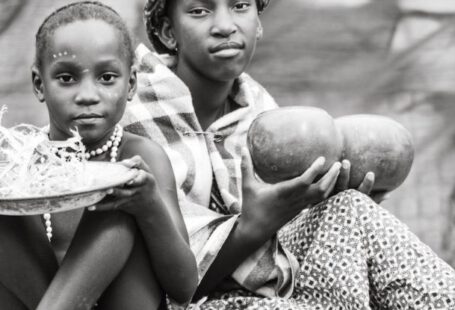Australia is known for its unique wildlife and diverse ecosystems, making conservation efforts crucial to preserving its natural heritage. If you are passionate about protecting the environment and want to get involved in conservation activities in Australia, there are numerous opportunities available for individuals to make a difference. From volunteering with conservation organizations to participating in citizen science projects, here is a guide on how you can actively engage in conservation efforts across the country.
Volunteering with Conservation Organizations
Volunteering with conservation organizations is a rewarding way to contribute to environmental conservation in Australia. Many non-profit groups, such as WWF Australia, Conservation Volunteers Australia, and Landcare Australia, rely on the support of volunteers to carry out their conservation projects. These organizations offer a range of volunteer opportunities, from tree planting and wildlife monitoring to habitat restoration and beach clean-ups.
By volunteering your time and skills, you can directly contribute to conservation initiatives and make a positive impact on the environment. Whether you are interested in marine conservation, biodiversity conservation, or sustainable land management, there are opportunities available for volunteers of all backgrounds and interests. Volunteering with conservation organizations also provides a unique opportunity to learn more about Australia’s flora and fauna, connect with like-minded individuals, and gain hands-on experience in conservation work.
Participating in Citizen Science Projects
Citizen science projects are another way to actively engage in conservation activities in Australia. These projects involve members of the public in scientific research and data collection, providing valuable information to support conservation efforts. From counting bird populations to monitoring water quality, citizen science projects offer opportunities for individuals to contribute to environmental research and monitoring.
Platforms such as the Atlas of Living Australia and QuestaGame allow citizen scientists to record observations of plants and animals in their local area, helping to build a comprehensive database of Australia’s biodiversity. By participating in citizen science projects, you can contribute to scientific knowledge, assist in monitoring environmental changes, and help inform conservation strategies. Citizen science projects also offer a great way to explore the natural world, learn more about Australia’s ecosystems, and engage with the scientific community.
Attending Conservation Events and Workshops
Attending conservation events and workshops is a great way to learn more about environmental issues and connect with fellow conservation enthusiasts. Many conservation organizations and government agencies host events, seminars, and workshops on topics such as sustainable agriculture, wildlife conservation, and climate change adaptation. These events provide opportunities to engage with experts in the field, participate in discussions on conservation challenges, and network with like-minded individuals.
By attending conservation events and workshops, you can stay informed about current conservation initiatives, gain valuable insights into environmental issues, and discover new ways to get involved in conservation activities. Whether you are interested in attending a community tree planting day, a wildlife conservation workshop, or a sustainable living expo, there are numerous opportunities to engage with conservation efforts across Australia. Events and workshops also offer a chance to exchange ideas, share experiences, and collaborate with others who are passionate about protecting the environment.
Getting Involved in Local Conservation Projects
Getting involved in local conservation projects is a tangible way to make a difference in your community and contribute to environmental stewardship. Many local councils, community groups, and environmental organizations run conservation projects that focus on protecting local habitats, restoring biodiversity, and enhancing ecosystem health. By joining a local conservation project, you can directly support conservation efforts in your area and help preserve the natural beauty of your surroundings.
Whether you volunteer to plant native trees in a local park, participate in a beach clean-up event, or join a community garden project, getting involved in local conservation projects allows you to have a positive impact on the environment close to home. Local conservation projects also provide opportunities to engage with neighbors, build community connections, and foster a sense of environmental responsibility. By actively participating in local conservation initiatives, you can play a role in creating a more sustainable and resilient ecosystem in your own backyard.
Conclusion: Taking Action for Conservation
Participating in conservation activities in Australia is a meaningful way to take action for environmental conservation and contribute to the protection of Australia’s unique ecosystems. Whether you choose to volunteer with conservation organizations, participate in citizen science projects, attend conservation events and workshops, or get involved in local conservation projects, there are numerous ways to make a difference and support conservation efforts across the country. By actively engaging in conservation activities, you can help safeguard Australia’s natural heritage for future generations and play a part in building a more sustainable and resilient environment. Get involved today and be a part of the solution to protect Australia’s precious natural resources.





